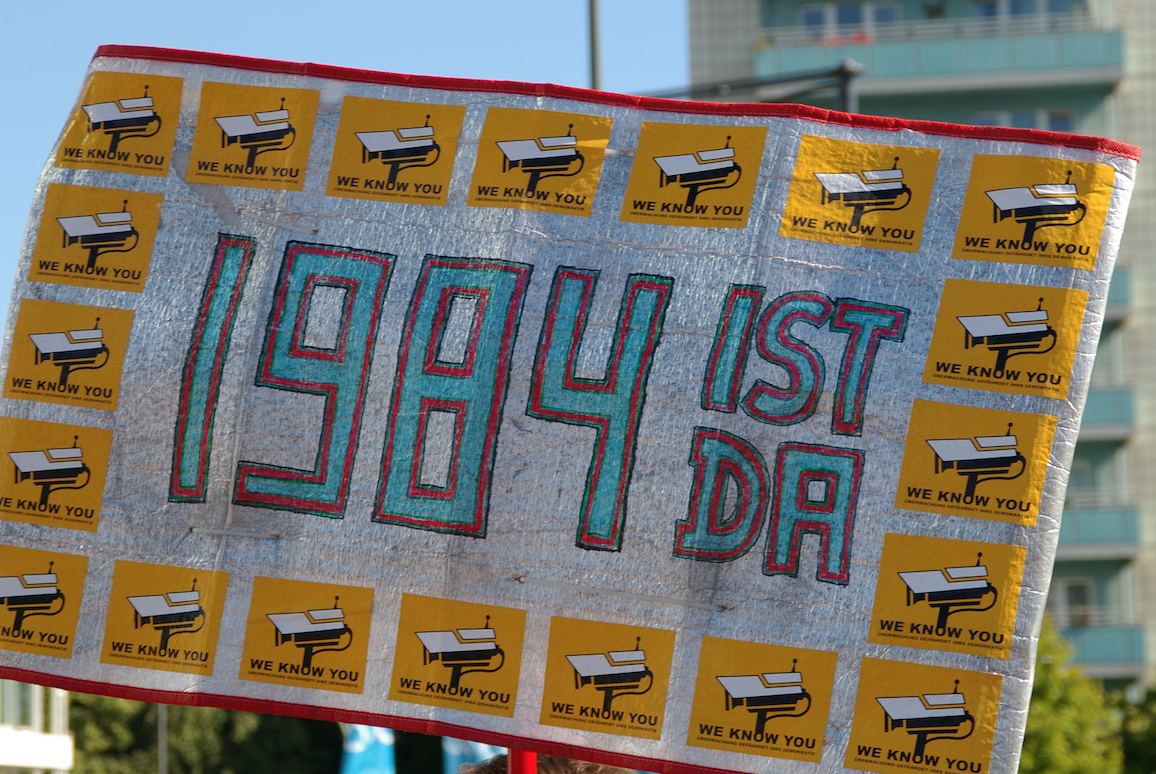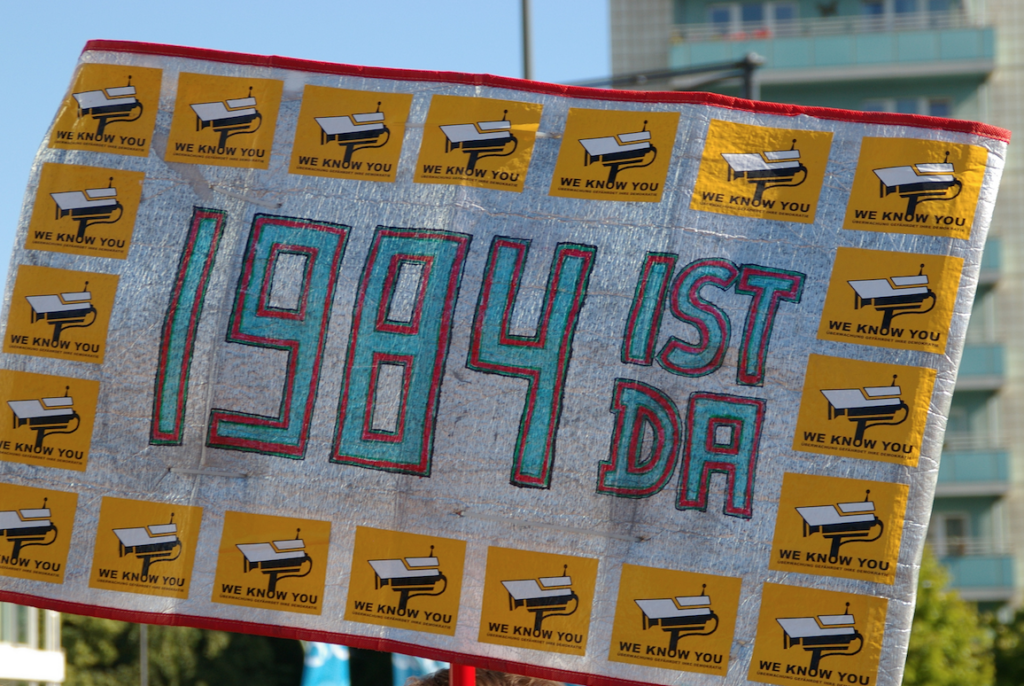2017 or 1984?
As part of the Birkbeck Arts Week 2017 programme, I was invited to join my Birkbeck Colleague Dr Ben Worthy and Professor Jean Seaton for a panel discussion about the relevance of Orwell's landmark dystopian novel Nineteen Eighty-Four (1949) to our own moment of political dystopia in 2017. Ben, a Lecturer in Birkbeck's Department of Politics, is author of The Politics of Freedom of Information: How and Why Governments Pass Laws That Threaten Their Power (Manchester UP, 2017) and researches government transparency and issues of digital democracy, and Jean is Professor of Media History at the University of Westminster and the official historian of the BBC, as well as the Director of the Orwell Prize.
In a Birkbeck blog post published ahead of the panel, Ben Worthy writes that:
The world in which Smith moves also feels scarily relevant. The leaders in Oceania control their people through targeted hatred and predict what they do before they do it. There are uncomfortable echoes of the dark side of a surveillance society and big data: they can even monitor you through your television. The book is also full of ‘political language’ that ‘is designed to make lies sound truthful and murder respectable, and to give an appearance of solidity to pure wind’. Double-think dominates a world where those in power can believe contradictory things simultaneously and bend reality at will. Opening up Orwell’s book today, Oceania’s propaganda slogan ‘ignorance is strength’ rings far too familiar for comfort.
My contribution to the discussion considered the literary context of Orwell's enormously influential novel (sales of which surged earlier this year after Trump advisor Kellyanne Conway used the Orwellian term "alternative facts" in an interview). I briefly sketched the way in which late nineteenth and early twentieth-century utopian literary visions by writers like H. G. Wells and William Morris provoked satirical responses and inspired the genre of the literary dystopia. E. M. Forster's 1909 novella "The Machine Stops" was written in response to Well's vision of techno-utopian futurity in Men Like Gods (1923), as was Aldous Huxley's Brave New World (1932). Indeed, Huxley cited the Russian philosopher Nicolas Berdiaeff's warning in the preface to his novel: "Utopias seem much more attainable than one may have previously thought. And we are now faced with a much more frightening thought: how do we prevent their permanent fulfillment?" Orwell was inspired by Huxley's novel, but also drew upon earlier texts such as Yevgeny Zamyatin's vision of a totalitarian state, We (1924), whose absolute ruler – The Benefactor – was an inspiration for his own authoritarian leader Big Brother. Whilst Orwell's novel wasn't the first literary vision of totalitarianism (indeed, the feminist anti-fascist dystopias of the 1930s such as Naomi Mitchison's We Have Been Warned [1935], Storm Jameson's In the Second Year [1936] and Katharine Burdekin/Murray Constantine's Swastika Night [1937] offer powerful interrogations of Nazist ideology and a near-future fascist Britain) it remains perhaps the most influential novel of the genre. As with Margaret Atwood's The Handmaid's Tale (1985), which has similarly seen a dramatic boost in sales since the Trump administration came to power, warnings of near-future political dystopianism feel more relevant than ever at a time of global uncertainty, attacks on the free press, and the return of the cult of strongman political leadership.
Click below to listen to the podcast of the panel discussion.
For an additional recording of the audience Q&A discussion, please visit Backdoor Broadcasting.
Featured image by Frerk Meyer under a CC BY-SA license.








 Dr Caroline Edwards is Senior Lecturer in Modern & Contemporary Literature at Birkbeck, University of London. Her research and teaching specialisms are in 21st century literature and critical theory, science fiction and post-apocalyptic narratives, Marxist aesthetics, and utopianism.
Dr Caroline Edwards is Senior Lecturer in Modern & Contemporary Literature at Birkbeck, University of London. Her research and teaching specialisms are in 21st century literature and critical theory, science fiction and post-apocalyptic narratives, Marxist aesthetics, and utopianism.
Follow / Contact